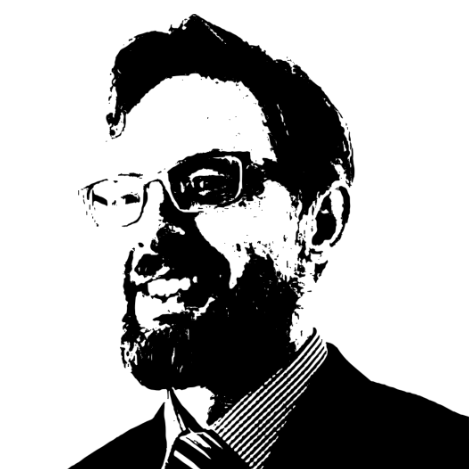
8 November 2023
A group of talented academic researchers from every discipline and background stare up at us hopefully as we begin a series of workshops on how they can build their policy impact. We opt for radical honesty to open – in our experience, most bureaucrats see academics as odious, too obsessed with their own disciplinary confines and prestigious pay-walled publications, only interested in critique and their own funding, and generally way too darn slow to be useful partners.
Plus, we say, your own university and faculty and granting bodies may not fund or promote you for the work required to build the kind of long-term trusting relationships that good policy work requires.
We pause for a mass exodus – but our academics stay put. One says: “I came from industry, and I slogged through all these years of research to help people at a macro level. So, let’s get to it.”
Not all research has, or should have, policy relevance, and not all policy work benefits from liaison with academics. But there is a sweet spot where researchers are perfectly placed to be honest brokers. Universities are also values-led public purpose actors, with the addition of rigorous methods, ethics and integrity measures, convening power and precious time to think. We sometimes joke with policymakers that our ivory tower can give us a good view of the landscape they might be missing!
We argue that there needs to be much more open and honest discussions about the different incentive structures within public purpose organisations and universities to work together. A key starting point is giving academics power, support, tools and choice early in their careers to build their policy influence over time as an honest broker, without the short-term pressure to only win grants and consultancy work.
Understanding the challenges
As Professor Brian Head points out in his excellent piece in these pages, we need to recognise that even the best evidence, translated beautifully into policy solutions by a trusted academic, may not always sway a decision-maker. We stress in our course that policy is a non-linear and messy process (introducing the garbage-can model), where academics will generally contribute as part of a broader policy network. Very rarely does knowledge transfer straight from academic to senior decision-maker, leading to a clear change in policy.
We also acknowledge that engaging in policy processes can be dispiriting, seeing up close the short-term political or ideological factors which sway decisions can lead to disengagement by academics. Contestability can feel bruising to someone whose credibility and expertise is questioned, especially if you are a researcher from a marginalised group in society. To quote Professor Head again in a wonderfully understated sentence:
Evidence-informed advisory systems have been challenged by fast decision-making, wicked problems, media misinformation, and populist slogans.
He further argues that closing the gap between policymakers and academic researchers is not a simple task, and that there are four reasons for the persistent communication gap. First, there are different professional cultures across industries. Academics tend to focus on scientific quality, while policymakers examine the pragmatic focus. Second, there are different time frames across industries, whereas researchers can spend a lengthy amount of time on projects, public servants must come up with quick responses to current issues. Third, incentives are different in the sense that researchers are focused on publishing in academic journals while public officials focus on managing emerging risks. Lastly, both sectors are immensely busy, which leads to limited opportunities for them to interact with each other.
So, mindful of these gaps, we prioritise long-term engagement that focuses on a researcher’s intrinsic motivation, managing time effectively, their own circle of influence, and their own passion to create change within a community of practice. This is particularly tied in our case to our university’s values to create a better future for all. It takes serious commitment to focus on a topic for the years and depth required to complete a thesis or a monograph. It is rare for that commitment not to fuel the desire for social change.
Understanding researcher motivation
Before beginning the 2023 workshops, we asked the sixty participants why they wanted to increase their policy influence. Their answers varied widely and included motivations ranging from basic research translation to participation in broader social movements. Some participants stated that they did not know how to apply their research in the policy space and wanted to learn how to have an impact. One participant noted that when they started doing research, they assumed their research would be used to help communities – but then realised publishing an article created no change at all. Taking part in the workshops allows them to learn how to directly draw the line between translating research to assist policymakers. Other participants pointed out that they had some experience in policy and hoped that the workshops can be used to expand on those experiences. There is vast untapped talent in universities of people who came from public service or “for purpose” backgrounds who can add value to this work.
Participants also hoped to learn where to start, how to identify decision-makers within the policy space and learn ways to communicate with them about their research findings. Despite coming from various academic backgrounds, the primary goal of all participants was to understand the policy space and learn how to translate their research into policy influence.
Many researchers were not Australian citizens from birth and needed to learn how Australian governance systems worked, and many Australian-born researchers had never encountered civics education in their studies and also needed to understand the foundations of how the machinery of government works.
So, we use workshop time to trawl government directories, parliamentary inquiries and organisational charts, NGO mandates and think tank websites and find actual people for our researchers to reach out to that is bespoke to their research interests. We spend time composing introductory emails that speak to the targeted policymakers’ interests because policy is ultimately about people and building trusted relationships.
Pathways to policy impact
Our goal was to design and run a series of online modules and in-person practical workshops to build skills and capacity for researchers to help them improve the policy impact of their research as part of Griffith’s Research Impact site.
Influencing policy is a great way to achieve research impact. However, for many researchers, policy is opaque, confusing, risky or scary. This course is designed to demystify the policy process and build simple and efficient processes to get research seen, understood and used by policymakers by building relationships and networks.
The modules (see table below) were designed with time-poor academics in mind and suitable for those on teaching and research profiles or HDRs. The aim was to provide effective and efficient ways to engage with policy stakeholders, including building skills and providing tools for immediate use. The sessions focused on creating an actual output, e.g., a policy brief or a parliamentary inquiry submission, that the researcher can immediately use. We emphasise being findable by external stakeholders and building an “Impact CV”.
The modules and workshops draw on the experience of our staff and the work of policy pioneer Professor Anne Tiernan. We also undertake experiential learning, taking early career researchers to Canberra to meet policymakers to get a better understanding of parliamentary processes. Finally, we have created a “Policy Champions at Griffith University” LinkedIn group so that policymakers can find and follow our budding policy influencers.
| Unit | Goal | Outline | Activity |
|---|---|---|---|
| 1 | PLAN | The Basics of Policy Influence | Create an external stakeholder map |
| 2 | TARGET | Developing a Theory of Change and designing an intervention; understanding public service ethics | Create a Theory of Change and choose ideal timing and target |
| 3 | MEET | Identifying public purpose decision-makers and sharing your findings | Create a one-page policy brief and request for meeting |
| 4 | PERSUADE | Writing influential policy submissions. Find and report your impact. | Create a draft policy submission |
| 5 | TRUST | Build relationships, strengthen networks, 'busk out' | Craft an event or participate in external event |
| 6 | LEAD | Be findable and contribute ideas to the commons | Draft an op ed with follow-up radio interview |
Table: Modules in our Pathways to Policy Impact course
The broader challenges
So, we can start building confidence and capability at a researcher level – but there are still formidable structural challenges. To be frank, most universities have invested in research impact because governments have mandated that shift in funding and reporting mechanisms. The Australian Research Council was poised to have an Engagement and Impact (EI) assessment in 2024 which was suddenly discontinued. EI assesses “how well Australian university researchers engage with end-users of research and how well universities are translating research into impacts beyond academia”.
Ironically, until government policy settles to favour or incentivise research with impact outside the academy (as opposed to research considered excellent inside the academy), the investment universities might make will be limited. We do not accept that research excellence is incompatible with policy relevance – but the way the research is designed, and how the findings are presented, will require significantly different strategies.
But there are some great investments happening by policy hubs at the better-resourced universities, and we would love to hear of any great ideas in this space from The Policymaker community. Peter Shergold (Chair of JMI) argues that there is progress in the relationship between government and academia in NSW based on the success of the James Martin Institute for Public Policy (JMI) which hosts this publication, runs collaborative projects with government, and manages the Policy Challenge Grant program. It is notable that there are very few philanthropic grants, think tank schemes or research grants where policy influence is baked into and valued by the granting process, even government grants.
There are clearly strides being taken at the University of Bath where there is a concerted effort to bring policymakers onto campus, bring policy people onto advisory boards and work with communities of practice.
Often though, we see high-profile impact initiatives led at universities by established professors, usually with extensive experience outside the academy, rather than investments in capability building for academics at the start of their careers with a focus on building trust as an honest broker rather than winning money.
Mind the gap
Despite these challenges, Professor Head notes that there are various ways that researchers can impact policy. One way is by ensuring that researchers can demonstrate how their work can benefit non-academic entities. Another approach is for university researchers to “busk out” (our term) and network with public servants in order to better understand the challenges that policymakers face.
Academic researchers should also tune up their writing skills to reflect the language used in the public service. Doing so allows for clearer communication across industries. Lastly, researchers who truly want to have an impact should focus on collaborating with other researchers. Even though relational efforts may take time to foster, they can have more impact than academics working individually. These strategies should be taught at the beginning of researchers’ careers in order for them to know how to shape policy from the start.
Start early and support hard
Policy influence is a long game – and it is always about relationships of trust and shared values. Even though there has been progress made in connecting government and researchers, academics still need support to translate their research findings into the policy process – and to be honest about the challenges of doing that. But every now and then, your expertise can make a policy outcome better for other citizens – and that is honestly a goal worth striving for.
Professor Susan Harris Rimmer is the Director of the Griffith University Policy Innovation Hub with a long history of public purpose work focused on human rights and gender equality. With Professor Sara Davies, Susan is co-convenor of the Griffith Gender Equality Research Network. Sue also leads the Climate Justice theme of the Griffith Climate Action Beacon and developed the Climate Justice Observatory. She is the founder of the EveryGen coalition (www.everygen.online) which seeks to amplify the voices of current and future generations and highlight the long-term impacts of today’s policy decisions.
Dr Ed Morgan is a transdisciplinary Research Fellow at the Policy Innovation Hub, Griffith University. His research focuses on developing, implementing and evaluating policy, planning and governance for landscape and natural resource management, sustainable livelihoods, ecosystem-based climate change adaptation and environmental protection. He also has a significant engagement role within the Policy Innovation Hub, developing training to for researchers on how to have policy impact, acting as a broker between government and researchers to improve policy impact across the University and supporting a range of Policy Innovation Hub projects.
Sofija Tanevska has recently graduated from Griffith University with a bachelor’s degree in Government and International Relations. She has worked for Griffith's Policy Innovation Hub as a research assistant, and has undertaken a research internship for Queensland Parliament. Sofija is passionate about doing research and examining effective strategies on solving government challenges.
Image credit: Getty Images
Features
Simon Rowell
Teddy Nagaddya, Jenna Condie, Sharlotte Tusasiirwe & Kate Huppatz
Subscribe to The Policymaker
Explore more articles
Ehsan Noroozinejad Farsangi & Hassan Gholipour Fereidouni
Jessica Cocks, Rob Ryan and Ben Spence
Features
Simon Rowell
Teddy Nagaddya, Jenna Condie, Sharlotte Tusasiirwe & Kate Huppatz
Explore more articles
Ehsan Noroozinejad Farsangi & Hassan Gholipour Fereidouni
Jessica Cocks, Rob Ryan and Ben Spence
Subscribe to The Policymaker









